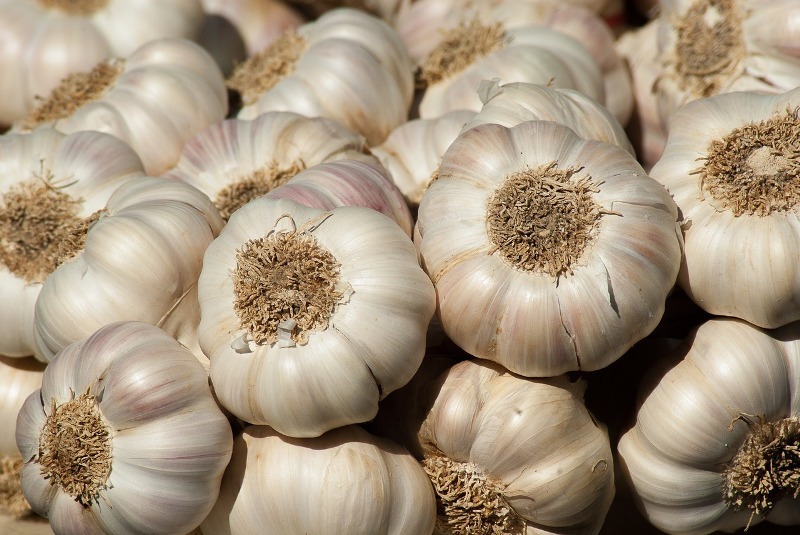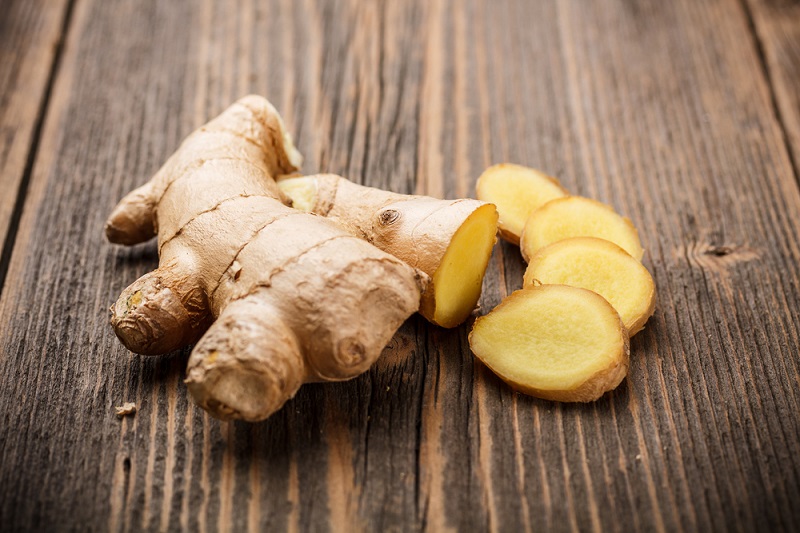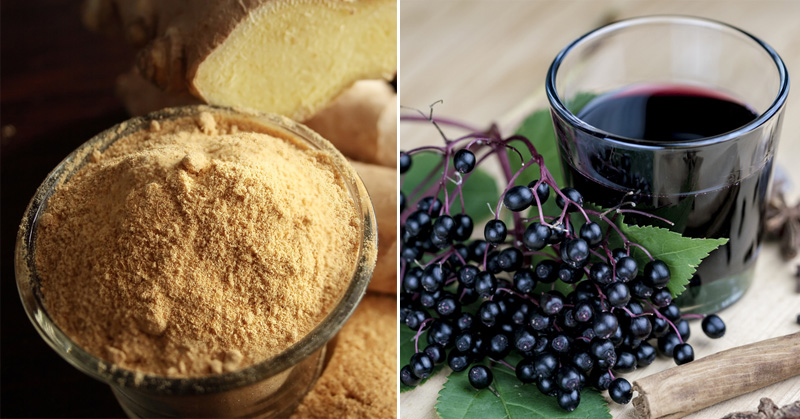What do elderberry, oregano, and licorice root have in common? Well, we have a fruit, a leaf, and a root, so maybe not much? But, no! In fact, these herbs, among others, all have antiviral properties that help the body fight off infection.
It’s no secret that viruses play an important role in human diseases. Fortunately, antiviral herbs work to strengthen the immune system, thus lowering inflammation, balancing good and bad bacteria, and countering viruses that cause the flu, the common cold, and other illnesses. (1)
Here are 10 antiviral herbs to add to your pantry:
1. Elderberry
Elderberries often play a prominent role in over-the-counter remedies for colds and coughs. But elderberry extract even supports the immune system against more virulent viruses. For example, a study published in the Journal of Alternative and Complementary Medicine found that elderberry can be used to treat Influenza A and B. It helps the body fight off viral infections, as well as bacterial infections. (2)
2. Echinacea
Echinacea, also known as the common purple coneflower, has its fans. As an antiviral herb, echinacea contains powerful phytochemicals that help fight viral infections and even reduce tumors. Furthermore, the herb has the ability to prevent bacteria from penetrating healthy cells, which greatly reduces the risk of developing infections. (3)
3. Garlic
Here’s something you probably have in your kitchen right now: garlic. Garlic is well-known for its powerful anti-inflammatory, anti-fungal, and antibacterial properties. Garlic can also help control hypertension, treat ear infections, reduce hair loss, improve cardiovascular health, and even reduce the risk of cancer. Wow! Studies have shown that garlic can help fight infections by killing off harmful microorganisms in the body. (4)

4. Calendula
Like other antiviral herbs, calendula can help fight inflammation and prevent free radical damage, among other things. Commonly a folk remedy, calendula (aka marigold) fights infection and soothes irritated skin. The flavonoid antioxidants in calendula can also help treat an ear infection. By fighting off bacteria, the flower petals of the calendula plant can help speed healing for cuts, burns, and other wounds. (5)
5. Astragalus Root
Many herbal remedies come from Traditional Chinese Medicine and Ayurveda. Astragalus root is one of those with many benefits. For example, astragalus helps prevent illnesses like the flu and the common cold. The herb has powerful antiviral properties that boost the immune system and fight infection. Studies have shown that astragalus root can also be used to help lower cortisol levels and heal cuts. (6)
6. Cat’s Claw
Antiviral herbs include cat’s claw, which can be used as a natural cure for many viruses, including herpes. Cat’s claw has powerful antiviral properties that can help treat fevers, stomach ulcers, and digestive problems, including irritable bowel syndrome, colitis, and leaky gut syndrome. The herb also works as a natural treatment for arthritis symptoms. (7)
Pro Tip: Try some Cat’s Claw Tea!
7. Ginger
You’ve heard ginger is good for you, right? Perhaps better known to help with nausea, ginger also boasts antiviral properties. Often used in Ayurvedic medicine, ginger has a natural warming effect on the body. It works to cleanse the lymphatic system and rid the body of toxins that can cause viral, fungal, and bacterial infections. Ginger can also help relieve nausea, reduce pain, and improve diabetes symptoms. (8)

8. Licorice Root
Powerful antiviral herbs also include licorice root. Like all these amazing plants, licorice root contains antioxidants that strengthen the immune system and help prevent free radical damage. Licorice root can also be used as a natural sore throat remedy. (9)
9. Olive Leaf
Olive tree leaves, and olive leaf extract in particular, support cells and protect against a variety of microbes. In fact, like other antiviral herbs, olive leaf has the ability to treat infections. It’s hard to believe that this medicinal food is considered an agricultural waste product. Research has shown that olive leaf can help fight candida, meningitis, pneuonia, hepatitis B, tuberculosis, and chronic fatigue syndrome. (10, 11)
10. Oregano
Last but certainly not least, oregano makes an appearance. Have you heard about Moms rubbing diluted oregano oil on their kids’ feet during flu season? This folk remedy has merit. Like other antiviral herbs, oregano is known for its powerful antibacterial and anti-fungal properties. This common kitchen herb contains carvacol, an anti-inflammatory compound that fights viral infections, along with allergies, parasites, and even tumors. (12, 13)
Antiviral Herbs in the Age of Coronavirus
It’s worth noting that coronavirus has been with humanity for centuries, but it is also worth noting that the National Institutes of Health continue to conduct research on herbal medicines. (14, 15)
In addition to the antiviral herbs on this list, bupleurum deserves a mention, as it combats not only certain strains of coronavirus but also hepatitis B virus (HBV). (16)
And the medicinal mushrooms, which can be found in powder form or tincture, offer a one-two punch. They both support the immune system and have adaptogenic properties. The so-called King and Queen of the medicinal mushroom world are Chaga and Reishi. These superherbs come in alcohol-based formulations that are particularly potent against viruses.


